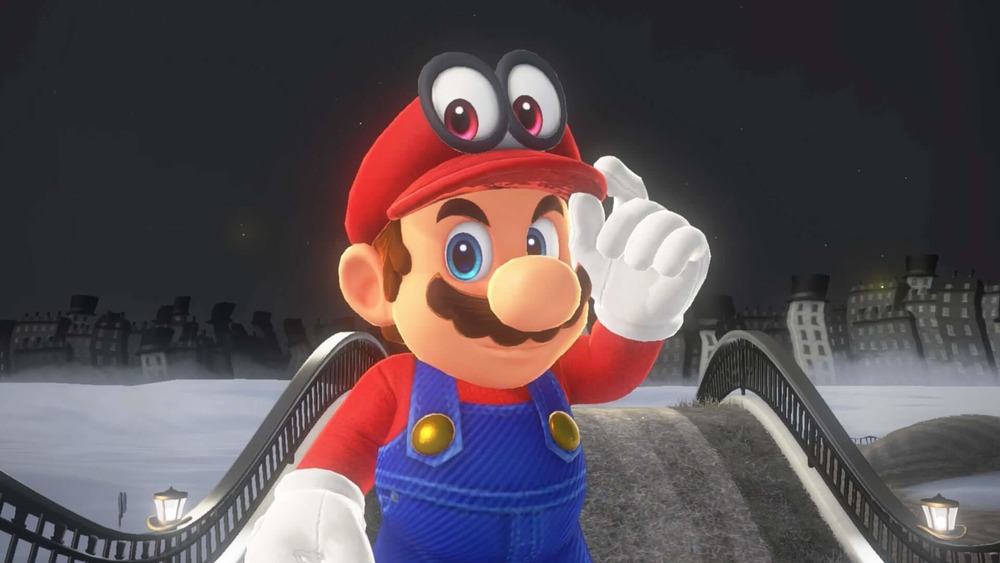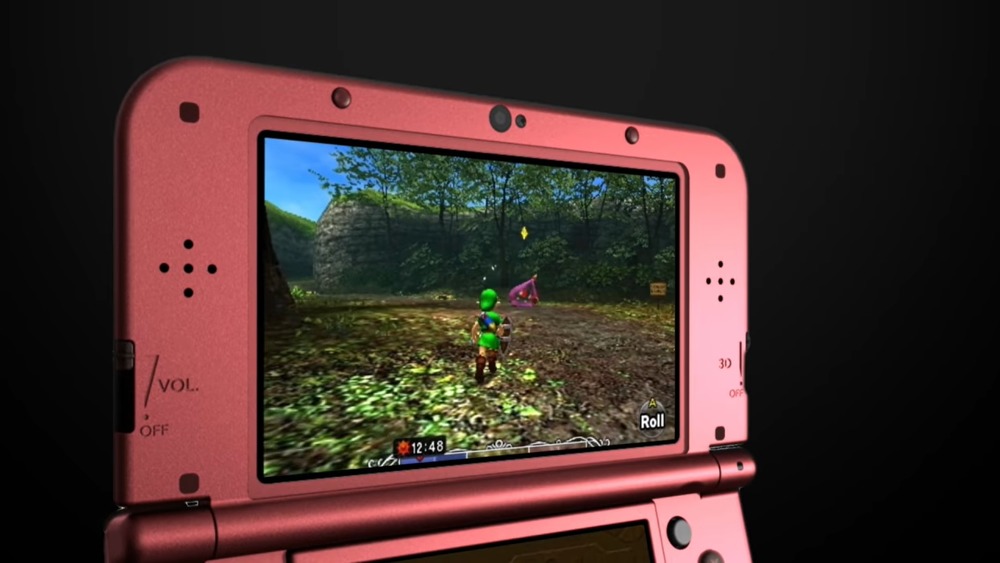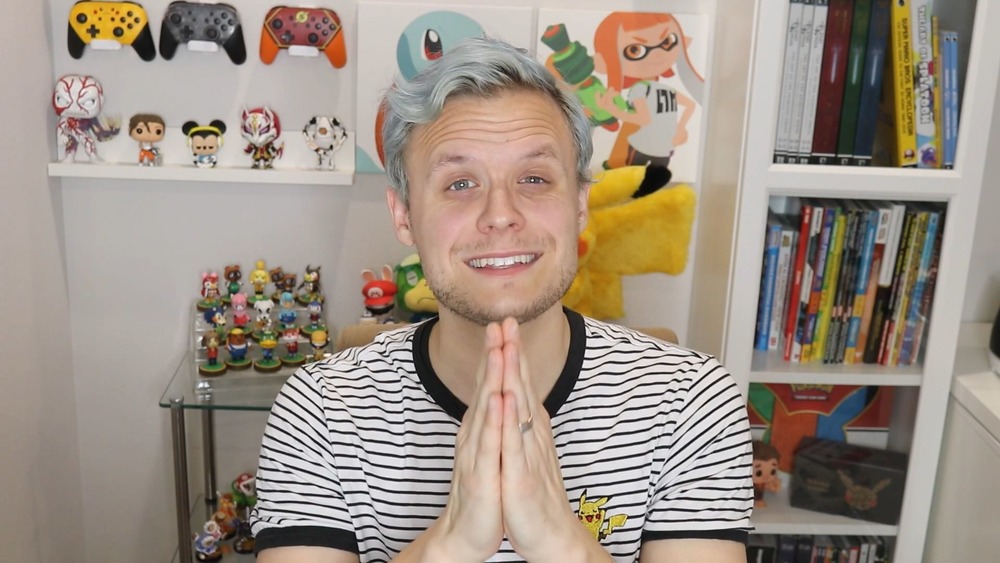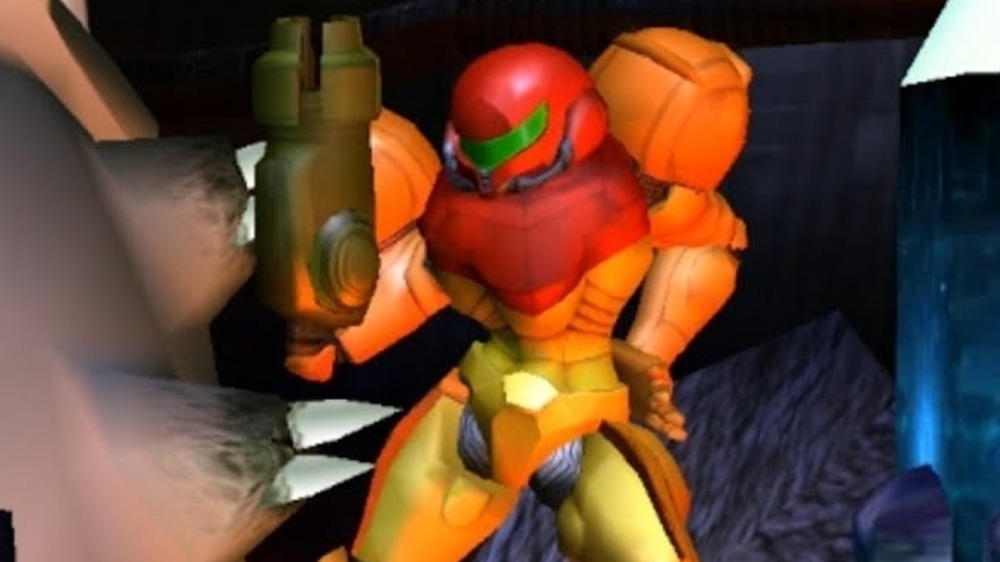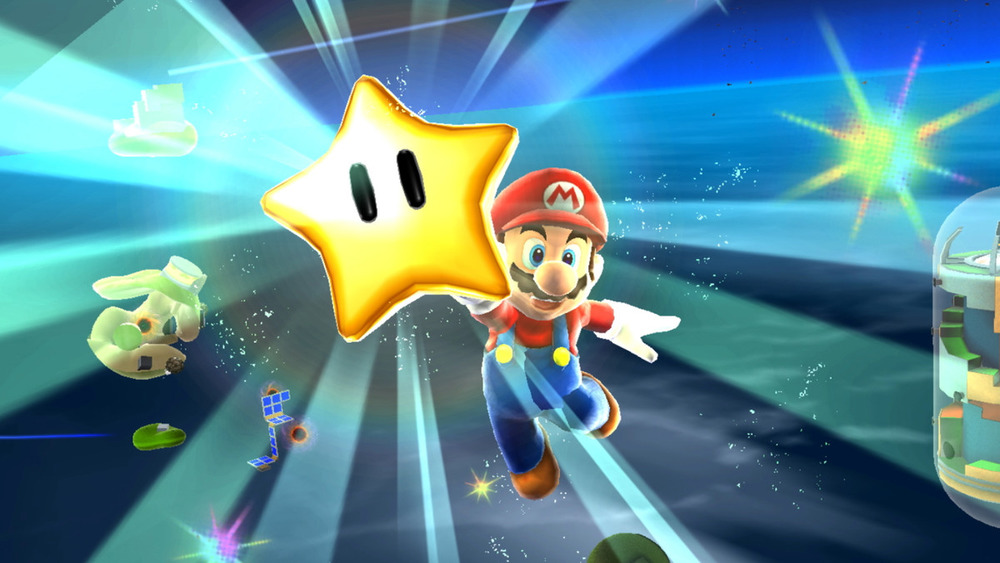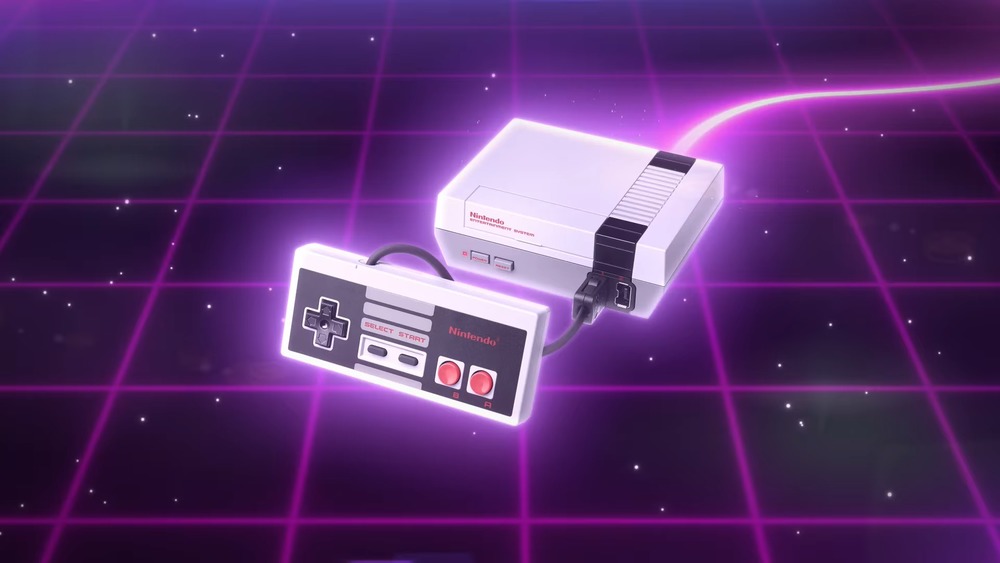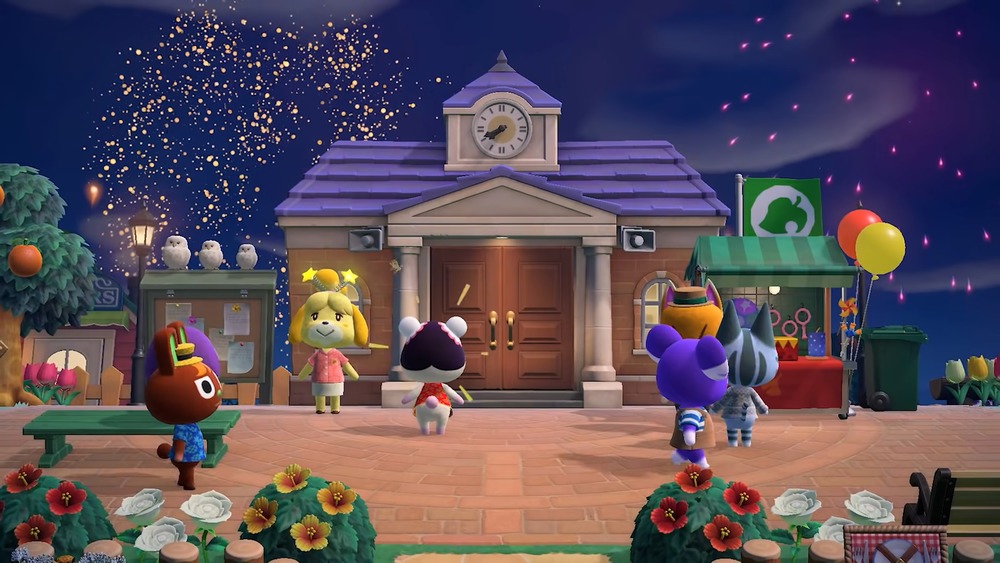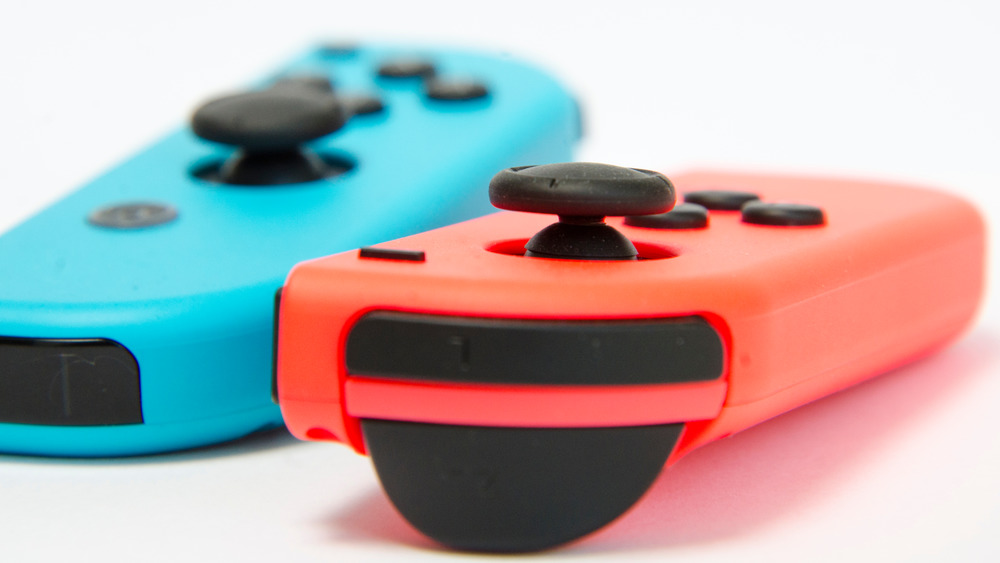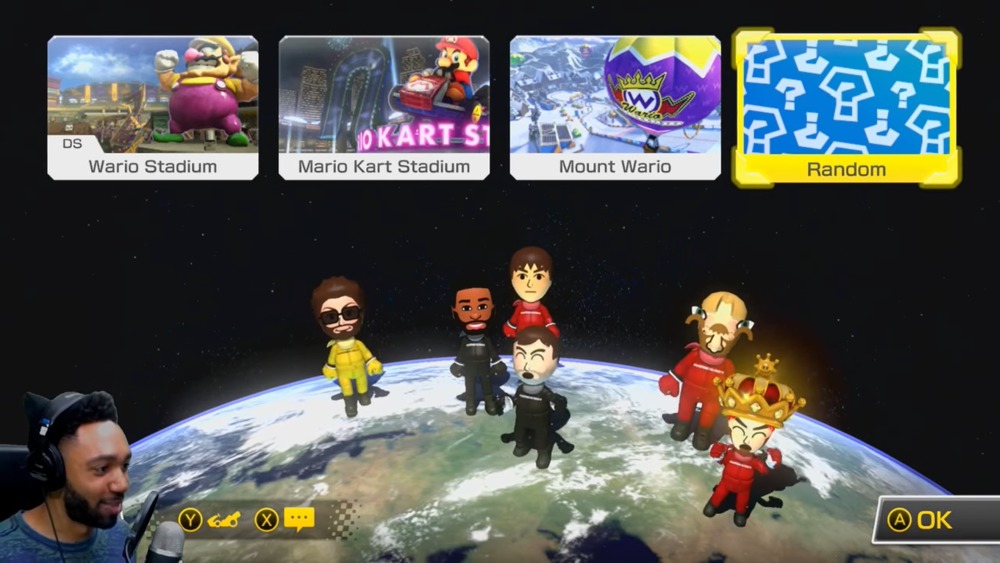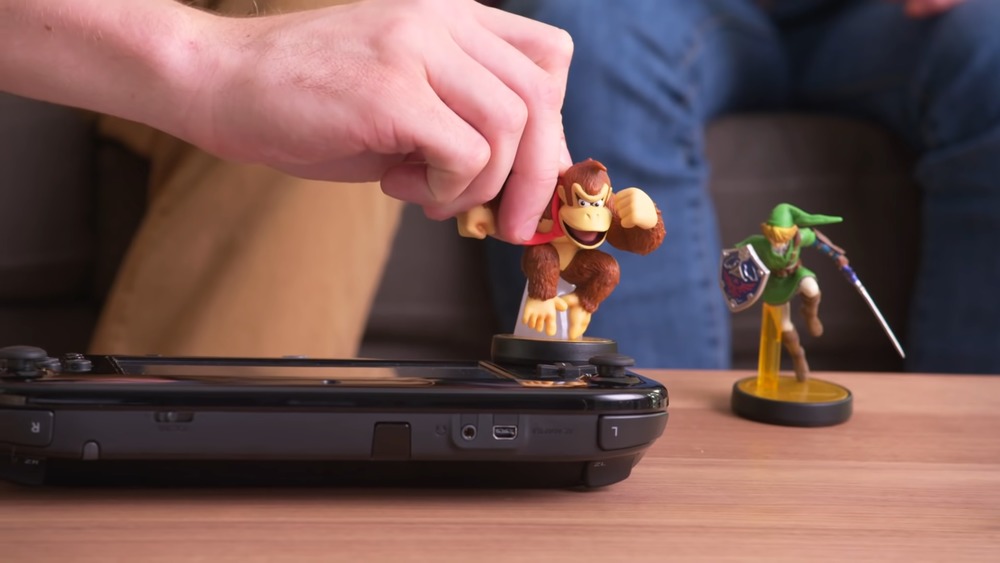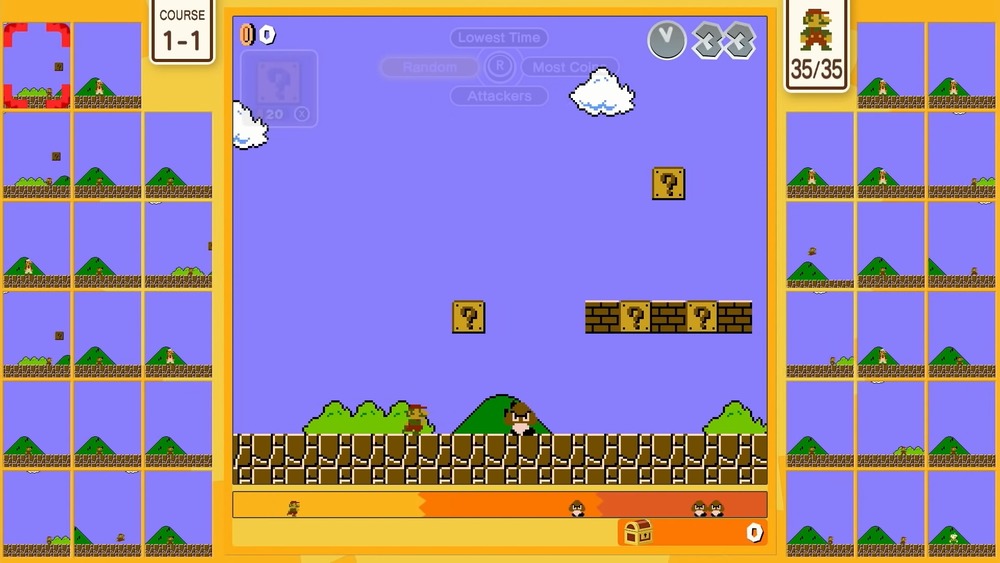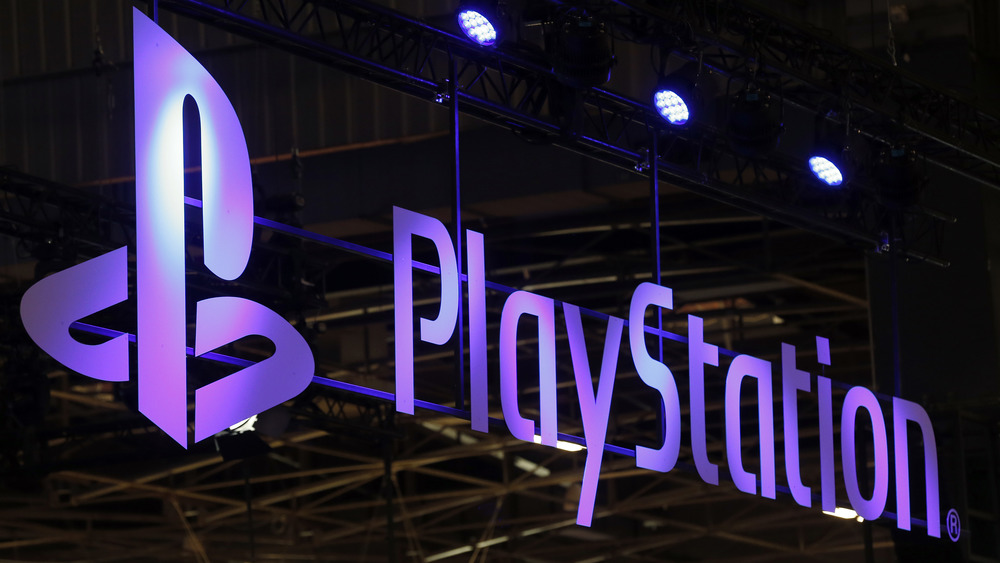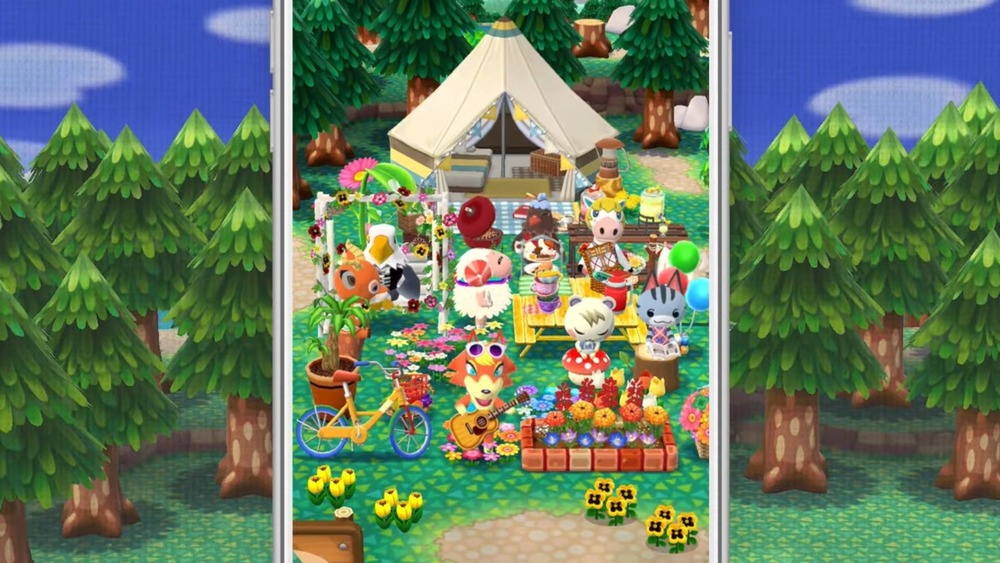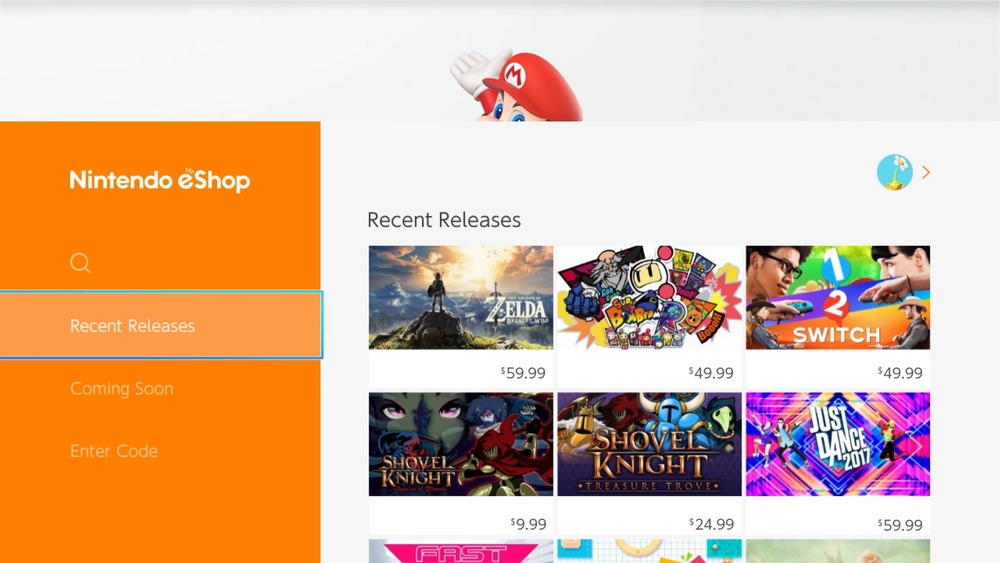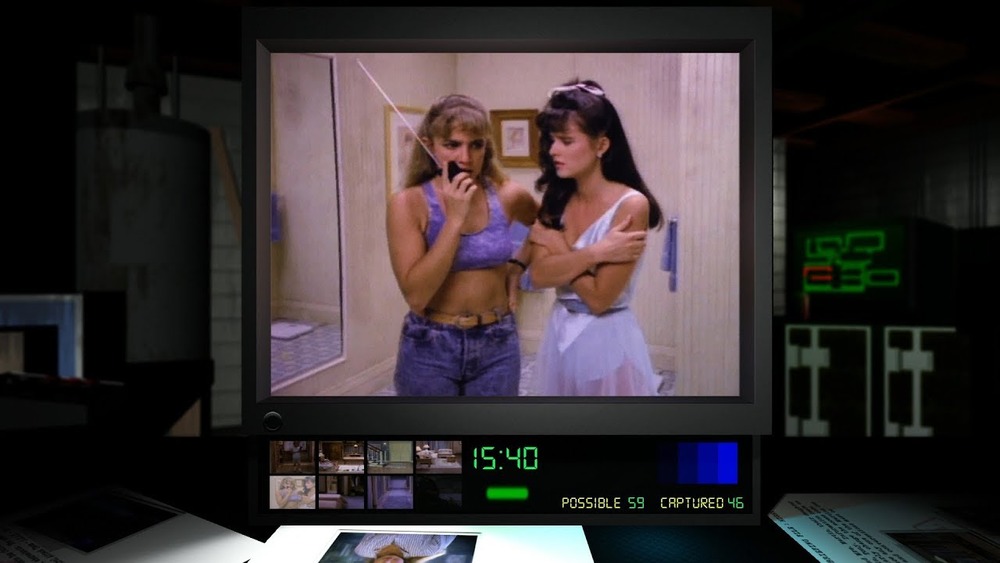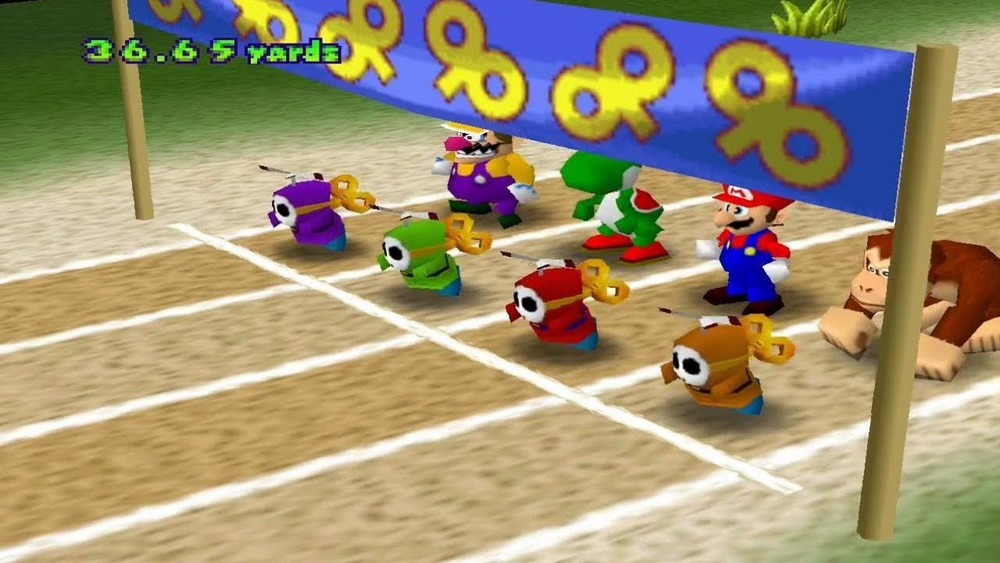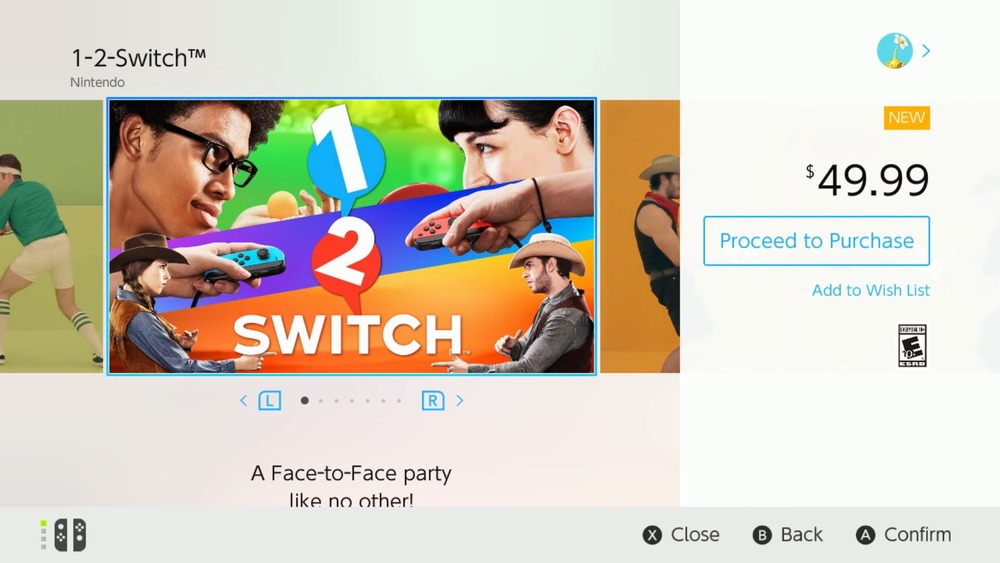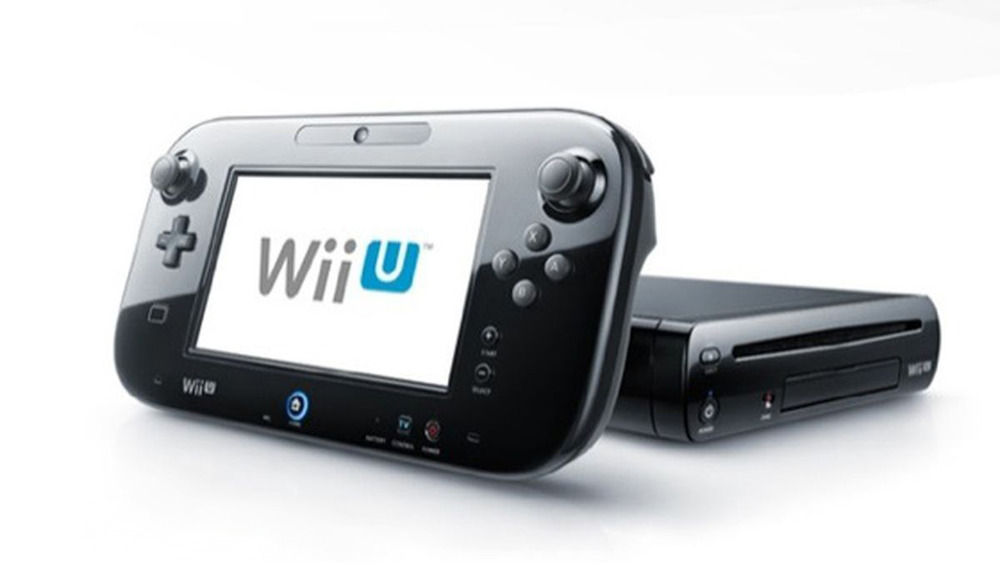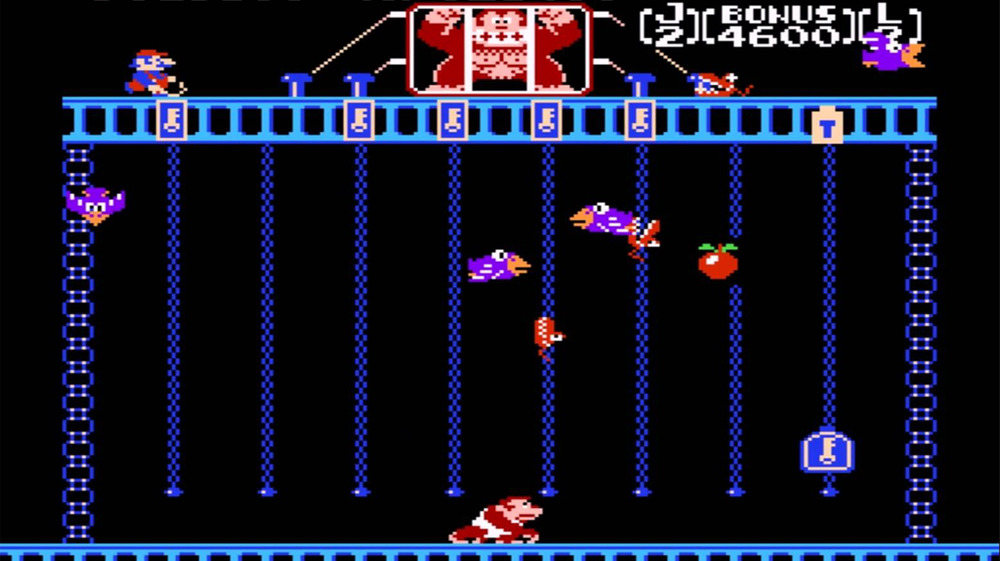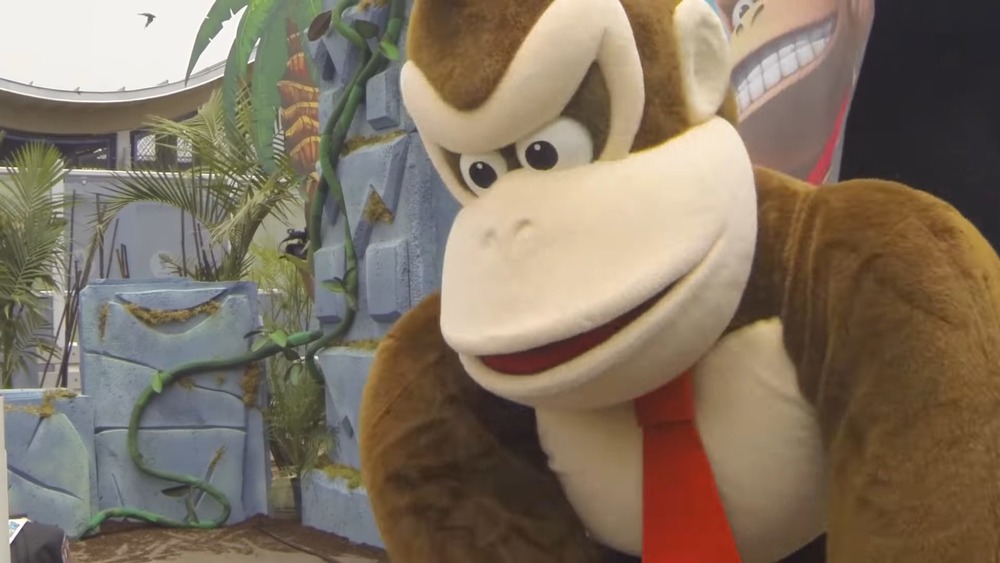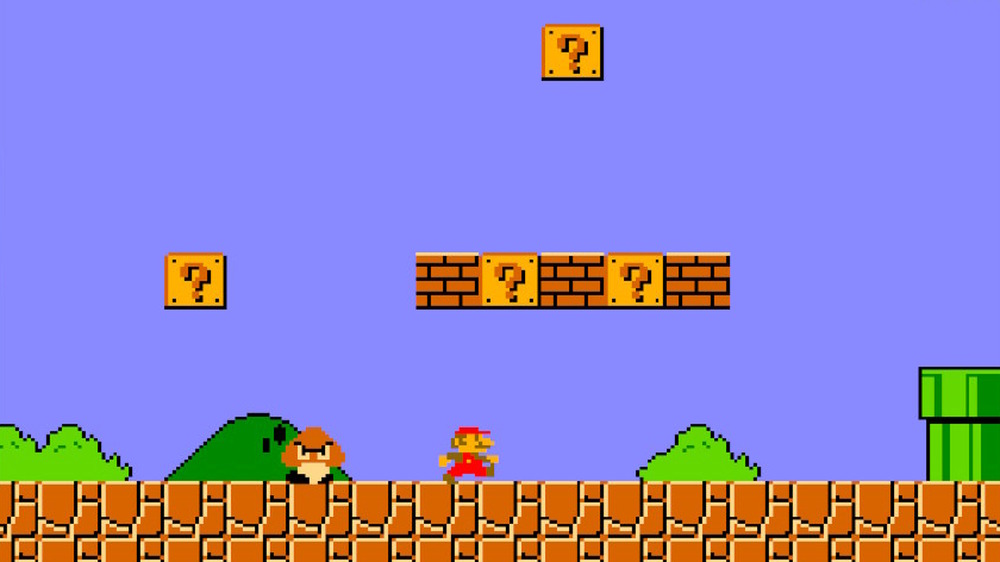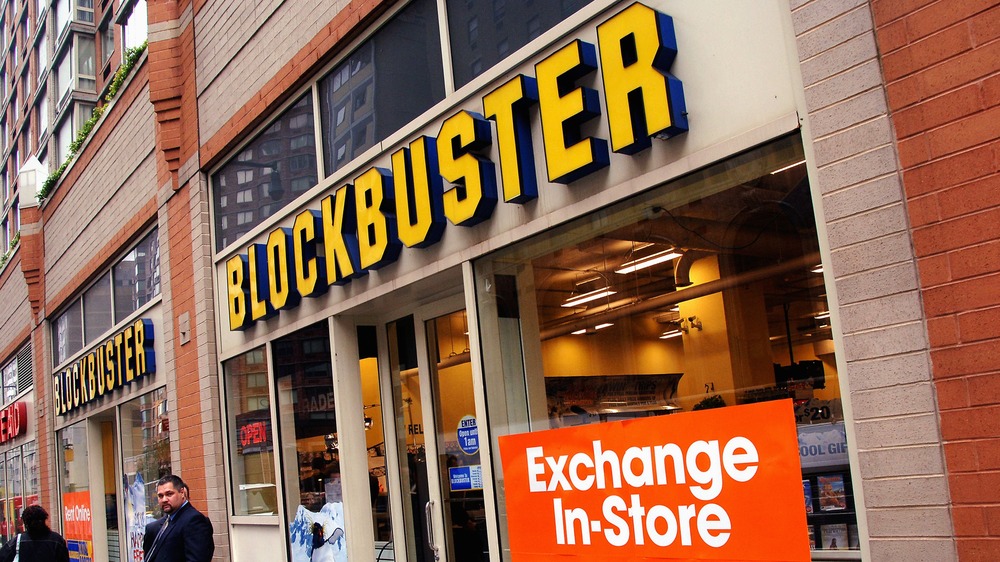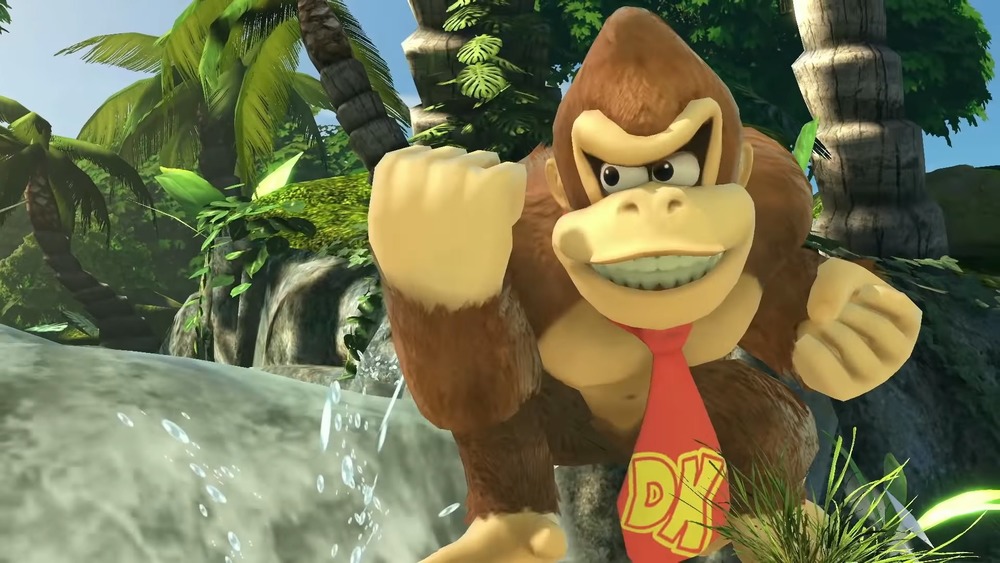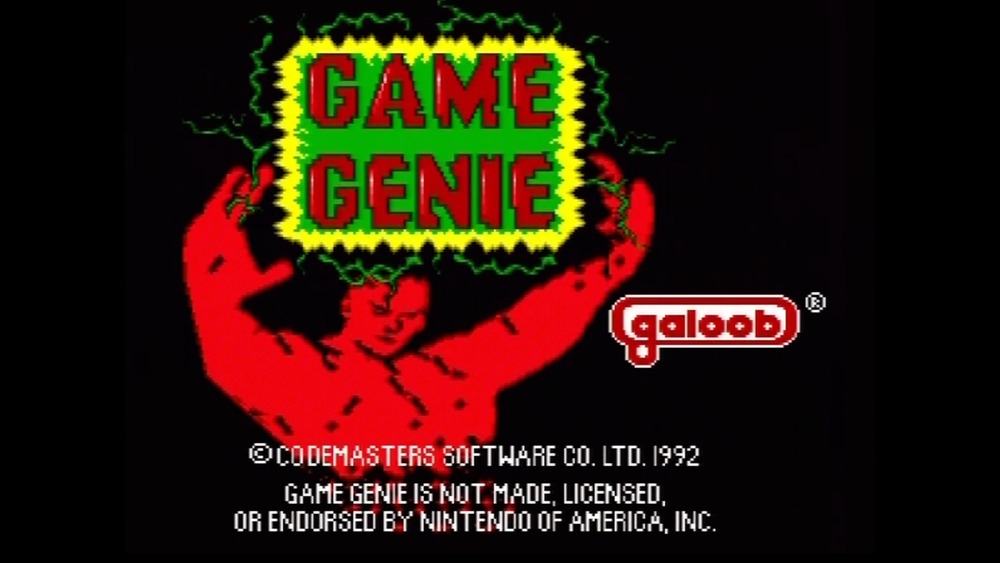The Shady Side Of Nintendo
Through its use of creative worlds, the lack of first-party games rated T or M by the ESRB, and the vast assortment of toys associated with its most popular characters, Nintendo has successfully cultivated a family-friendly image over the years. Unfortunately, the company's higher-ups aren't literal Jim Henson Company puppets. Like Sony, Microsoft, and every other player in the video game industry, Nintendo is staffed by ordinary people. This means that, despite its friendly facade, Nintendo isn't exactly perfect, as some may believe.
As a company that has been involved with video games since the late 1970s, Nintendo has a long, storied history that could fill several books. As such, the company is liable to have encountered a controversy or two. Not all of Nintendo's dust-ups have been the result of malintent, but others don't exactly paint the company in the best of lights, either. Here's a list of potentially shady incidents that may interfere with the wholesome image that Nintendo has maintained over the decades.
The 3DS got a huge price drop after release
While price cuts aren't anything all that new, the Nintendo 3DS's excessive drop in price mere months after release had consumers raising their eyebrows.
Kotaku reported that the handheld system initially started at $250. Just five months later, it fell to $170 — a staggering 32% slash in price. By this point in the console's lifespan, fewer than 900,000 systems had been sold in the United States. Given the lack of sales, the drastic price reduction may have been a ploy to attract reluctant buyers.
Expectedly, this major discount — especially so close to the release of the 3DS — was met with criticism. Those who had bought the 3DS before the price reduction felt cheated, ultimately wishing that they had held off a few months to capitalize on the lower $170 price tag. According to CNET, late Nintendo CEO Satoru Iwata released an apology to these early buyers. In his apology, Iwata acknowledged, "never before has Nintendo chosen to issue such a dramatic price drop less than 6 months after a system release." To make amends, those who bought a 3DS before the price cut would be given 20 free Game Boy Advance games through something called the 3DS Ambassador Program.
Nintendo's legal team targeted a small creator selling Etika-themed Joy-Cons for charity
Nintendo made headlines in late 2020 after YouTuber and artist CptnAlex ran a successful Indiegogo campaign to sell Etika-themed Joy-Con shells to raise money for charity. The shells were designed in honor of YouTuber Etika, and the proceeds were meant to go to the non-profit JED Foundation. Despite the campaign's altruistic intentions, a cease and desist letter was sent to CptnAlex by Nintendo. Speaking to The Independent, CptnAlex clarified that the letter was not solely in response to the "Etikons" that had been crowd-funded, and that some of the violations had to do with other Nintendo-themed products he was selling in his Etsy store.
Nintendo's letter meant that CptnAlex could not continue to sell any of the Nintendo-themed products without provoking a lawsuit. Despite his frustrations with the situation, CptnAlex recognized that he "infringed on Nintendo Copyrights and Trademarks." While trademarks must be protected according to law, Nintendo's targeting of individual creators over large-scale companies that infringe on their IPs hasn't gone unnoticed. Though the company may be upholding its trademark, the entire situation has stirred a fair amount of negative sentiment regarding how Nintendo seemingly values its fans.
Nintendo canceled a Smash Bros. tournament for unauthorized mods
The Big House, one of the largest and longest-running Super Smash Bros. tournaments going back to 2011, had its 2020 tournament shut down by Nintendo's legal team. The reason? Due to the coronavirus pandemic, The Big House had arranged for participants in its Melee tournament to use an emulated copy of the game running a mod called Slippi, which allows for online play for the nearly 20-year-old game. Once made aware of the situation, Nintendo, a long time official partner of the competition, set an ultimatum for The Big House: Either disallow the use of Slippi for the Melee tournament or face legal consequences.
In the end, The Big House insisted on using Slippi, so Nintendo issued a cease and desist letter for the whole 2020 event over the use of pirated software, even the Ultimate tournament that was going to use the games built-in online matchmaking. This was not a popular move in the larger Smash community's eyes, leading to #FreeMelee trending on Twitter and notable players in the Smash scene berating Nintendo for taking away the only official chance competitors had to compete during a pandemic.
Nintendo likes to push limited-run games
Limited digital releases have garnered Nintendo a bit of negative publicity. Though the company dabbled with the concept with the free-to-play title Jump Rope Challenge, the idea of limited runs for big-name titles has not been met with enthusiasm.
Super Mario Bros. 35 adds a competitive spin to the classic title in the vein of Tetris 99. The game is exclusive to the Nintendo Switch Online service but is not a permanent fixture. According to Nintendo's Direct presentation, the game is only playable from Oct. 1, 2020, to March 31, 2021.
Perhaps more significantly, Super Mario 3D All-Stars – a collection celebrating the 35th anniversary of Super Mario — will also be delisted from the eShop on March 31, 2021. Even more shocking is that physical copies of that title will be pulled from physical retail locations on the same date.
The Washington Post speculated that limiting sales for these games could be a tactic to bolster subscriptions to Nintendo Switch Online. Or perhaps the three games included in the bundle will be resold individually at a higher price point later on. Whatever the reason, limited availability doesn't seem to sit right with many Nintendo fans.
The NES Classic was tough to track down
The Nintendo Entertainment System is home to some of gaming's most beloved titles. From the classic Super Mario Bros. to the original Legend of Zelda, the NES was the first stop on a lifelong journey of gaming for many video game enthusiasts. So, when Nintendo announced in 2016 that it would be launching a mini version of the NES preloaded with 30 popular titles, the excitement was off the charts. Compounded with the fact that the nostalgic console was selling for only $60, Nintendo fans were practically begging the company to take their money.
The problem is Nintendo didn't seem to want the money, given the lack of NES Classics for sale. According to reports from Forbes and Polygon, stores did not receive enough units to meet customer demand. The end result was that retailers sold out fast and didn't receive new stock for months, making the console nearly impossible to find without turning to scalpers on bidding sites.
Nintendo President Tatsumi Kimishima released an apology citing production issues for the NES Classic shortages. However, some believe this was all an intentional decision to drive up customer interest in the console.
Animal Crossing: New Horizons' save system was awful
Animal Crossing: New Horizons was one of the most highly anticipated games of 2020. But despite the excitement surrounding the drop of a new Animal Crossing title, a critical piece of information served as a painful reminder that Nintendo is not exactly living in the modern era when it comes to online functionality.
At launch, cloud saves for the title were unsupported. Not only that, but New Horizons only allowed for one island per console, regardless of how many accounts were on the Switch. Not only did players feel restricted, there was a genuine fear that if something happened to their Switch, there was nothing they could do to retrieve their progress. Considering that the Animal Crossing series is built around customization and putting in long hours of personalized, often tedious touches, a lost save file would serve as a devastating blow to any player.
Cloud saves and an island recovery option were eventually added in a July 2020 update, but by this point, the game had already been out for months. For players who'd already lost their islands because of problems with their Switches, the damage was already done.
Joy-Cons had a drift issue
Though the Nintendo Switch has been met with rave reviews across the board, the console's Joy-Con controllers haven't exactly been living up to everyone's expectations. While some players are lucky not to experience any issues at all, a good number of Joy-Cons suffer from what has been deemed "Joy-Con drift."
What exactly is Joy-Con drift? Basically, it's when the Joy-Con thinks that you've inputted a command when you haven't at all. This can result in minor annoyances like camera angles acting wonky for a few seconds. It can have more drastic effects, as well, like sending characters aimlessly continually running in one direction. This can make some games virtually unplayable.
Though Switch owners have the option of sending in their janky Joy-Cons in for repair, they have to pay a shipping cost to do so. A fix also doesn't guarantee the same issue won't resurface again later on. Nintendo was dealt a class-action lawsuit in July 2019 as a result of this Joy-Con flaw, and Nintendo President Shuntaro Furukawa offered affected Switch owners an apology a year later.
The Nintendo Creators Program was a major pain
For content creators, navigating copyright laws is already a tricky affair. Throw in the added stress of Nintendo's aggressive restrictions on the usage of its properties, and it's enough to make most people shy away from streaming or making Nintendo-focused content.
One of the most egregious examples of Nintendo's lack of leniency in this area is the controversial Nintendo Creators Program. Though the program was promoted as a way for YouTubers to advertise on videos featuring Nintendo content, they took portions of the profits made from channels and videos registered in the program, according to Kotaku. The registration process would also take up to three days, which could be disadvantageous to reviewers and those posting on deadlines.
Of course, the program only further strained the relationship between Nintendo and YouTubers. In the end, the Nintendo Creators Program was shut down. Creators, as reported by The Verge, were finally able to profit from content like Let's Plays or livestreams without Nintendo stepping in to take a cut.
Amiibo figurines were perpetually out of stock
Nintendo's Amiibos were a brilliant marketing opportunity for Nintendo. Fans could buy figurines of their favorite characters like Pikachu, Mario, Samus, or even Wii Fit Trainer, and scan them into their Wii U or 3DS to add extra content in select games. For those new to the world of Amiibo collecting, it may be hard to believe that these simple toys were the source of so much stress and heartache for so many fans.
Once the first wave of the Super Smash Bros. Amiibo went live, there was an apparent lack of availability for three specific Amiibo in the lineup: Marth, Wii Fit Trainer, and Villager. The second-hand market went wild. Scalpers were selling rare Amiibo well above the $12.99 market price, and the trend would only continue as new Amiibo were released and resold at outrageous prices on sites like eBay.
A year after the initial release, Nintendo released a statement to Kotaku apologizing for the production shortages. Eventually, the once-impossibly rare Amiibo would be re-released, but memories of the beginning of the Amiibo craze, refreshing pages, and canceled pre-orders were not soon forgotten.
Nintendo Switch Online is lackluster
Xbox Live has existed since Microsoft's original Xbox. PlayStation Plus debuted on the PlayStation 3 in 2011. With these two services available to gamers, it only seemed like a matter of time until Nintendo offered something similar. That comparable online service came in the form of Nintendo Switch Online.
However, once details of the service were revealed in a Nintendo Direct, consumers openly questioned whether $20 a year was worth it for a small library of NES titles, limited cloud saves, and an external phone application for voice chat. Some websites, like The Gamer and Polygon, wrote that Nintendo wasn't providing a service worthy of its price.
Nintendo later added free-to-play titles such as Tetris 99 and Super Mario Bros. 35 to the service, which helped boost its value. Years later, however, Nintendo Switch Online still didn't provide a good online multiplayer experience, and still lacked the free monthly games Xbox Live and PlayStation Plus subscribers had grown accustomed to.
Nintendo backstabbed Sony
Many of the greatest stories are about epic quests for revenge. John Wick and Kill Bill come to mind as prime examples. The video game world has its own tale of vengeance that rocked its foundations, and it's one that involves both Nintendo and Sony — two companies that are still big players in the industry to this day.
The drama unfolded at the June 1991 Consumer Electronics Show, where Nintendo was set to unveil a partnership with Sony and Phillips to make a disc-based add-on for its SNES console. However, when the time came for the announcement, Nintendo announced that it would be working solely with Phillips on the new project. This surprised just about everyone at CES, including Sony.
In retaliation, Sony decided that if Nintendo would go back on the deals it made, Sony would beat Nintendo at its own game. Sony bided its time and transformed the disc-based console it had worked on with Nintendo into its own killer console. The rest is PlayStation history.
Nintendo pushed microtransactions in its mobile games
When it comes to mobile gaming, microtransactions and gambling mechanics have become par for the course. It was only a matter of time before Nintendo and its developers jumped on the free-to-play mobile bandwagon, as well.
The first Nintendo mobile game to use microtransactions was Super Mario Run. Players could complete the first three levels for free before the game forced them to pay $9.99 for the rest. While this may not have seemed egregious at face value, as Paul Tassi at Forbes explained, the price point was not clearly stated to players up front. The game was located in the "free" section of the iOS store, easily leading to confusion. After the release of Super Mario Run, Nintendo went on to add microtransactions to even more of its mobile games.
According to a 2019 report from The Wall Street Journal, Nintendo asked developers working on its mobile titles to back off of the microtransactions a little bit. The reason? Nintendo didn't want to be criticized as greedy by consumers. Unfortunately, games published after that, such as the particularly cash-grabby Mario Kart Tour, Dr. Mario World, and Pokemon Masters EX, complicated that message with their not-so-subtle reliance on microtransactions and Gacha mechanics.
The Nintendo eShop is overrun with shovelware
Since the beginning of the Nintendo Switch's lifespan, the console has enjoyed significant indie support. According to Time Magazine, the Switch's hardware is so accessible that even mobile developers can create games for the system, further aiding in indie development.
But while Nintendo has become much more supportive of indie titles and developers, the eShop is evidence that more work needs to be done. Trying to find quality indie titles in the eShop is like trying to find a needle in a haystack. The eShop is lacking in quality control, and a lot of subpar games are getting through as a result.
Game developer Mike Rose described how the storefront can be gamed in an interview published in MCV. Games reach the top of the charts when they sell a lot of units, incentivizing developers to release dirt-cheap games. As a result, the eShop is flooded with shovelware. This has caused heaps of headaches for indie developers trying to promote legitimate games on the platform.
With so little oversight and a lack of user review options, it's difficult for users to filter through the eShop's many low-effort releases. What's worse, Nintendo hasn't acknowledged this as an issue that needs to be fixed.
Nintendo fired a Treehouse employee under questionable circumstances
In April 2016, Nintendo fired Allison Rapp, who worked in marketing for Nintendo Treehouse. Her dismissal followed a monthslong campaign from participants in GamerGate and, according to Kotaku, frequenters of the neo-Nazi website The Daily Stormer. Her detractors had been both harassing Rapp personally and reaching out to Nintendo with numerous complaints.
Why were people rallying to get this member of Nintendo's marketing team fired? Rapp had used her sizable online following to talk about feminism and adjacent social justice issues, a common precursor for women facing Gamergate ire. In a statement, Nintendo claimed that Rapp was fired for holding a second job that clashed with Nintendo's values. As quoted in a Polygon article, Rapp said on Twitter, "Do you think that if the industry wasn't afraid of women, sex-positivity, etc. that the [anonymous] moonlighting I did would have been a problem?"
Many were quick to criticize the company. Frustrations were encapsulated in an article on Uproxx that claimed the company's actions made them look "callous, and ... like Nintendo had something to hide."
Nintendo threw Sega under the bus in front of congress
In the '90s, violence in video games was a large part of the public discourse in the United States. The thought of pixelated guts and gore corrupting America's youth ultimately led to congressional hearings on video game violence, which took place in 1993.
The controversy was largely centered around Mortal Kombat, which came under the microscope after a rise of real-life violence occurred during the height of the game's popularity. As a result, Mortal Kombat, and video games as a whole, became the scapegoat for an undercurrent of violence that had supposedly gripped American youth.
At the hearings, Nintendo chairman Howard Lincoln seized an opportunity to draw heat away from his company at the expense of Nintendo's biggest competitor, Sega. He specifically cited Mortal Kombat and Nintendo's efforts to censor the original game's bloodiest elements in the Super Nintendo version of the game. This was clearly a shot at Sega, which did not censor Mortal Kombat on the Sega Genesis.
Lincoln went even further, painting Sega's controversial game Night Trap as particularly dangerous to children while stating the title would "never be on a Nintendo system." Ironically, Night Trap later became available on the Nintendo Switch.
Mario Party caused hand injuries
The Wii mostly targeted casual gamers, and for that reason, it played host to a lot of party games. Some might argue, however, that the console responsible for making these games popular was the Nintendo 64. Mario Party was the title that put the party game genre on the map, kicking off a long-running franchise that still gets new entries. Mario Party on the N64 also injured quite a few of Nintendo's fans.
Mario Party's mini-games had very simplistic control schemes, sometimes using just a handful of buttons. A few games tasked players with quickly rotating the control stick to win the match. To accomplish this, many players placed their palms over the control stick and moved their hands in a circular motion. Unfortunately, some who employed this tactic wound up with injuries to their palms.
Once enough players and concerned parents complained, Nintendo was taken to court by the Attorney General of New York. As a remedy, Nintendo settled out of court, paid the attorney fees for the State of New York, and promised over $80 million to provide padded gloves that affected families could claim.
Nintendo's refund policy is too rigid
Nintendo really likes your money; so much so that, when the company has it, it doesn't want to give it back. This can be seen in Nintendo's refund policy, which states that customers are not entitled to a refund for a game they've paid for, even if that game hasn't actually come out yet. In 2018, the Norwegian Consumer Council launched a formal complaint regarding Nintendo's policy. Eventually, that complaint made its way to Germany, where Nintendo of Europe is headquartered.
In addition to Nintendo, six other digital marketplaces were investigated to see if they operated using the same policy. Steam and Origin were found not to violate European law by the council's interpretation. It was found that Microsoft and Sony also allowed customers to make returns before a game was downloaded or released. Nintendo, however, was not so flexible. The company had to explain its case in front of the Ministry of Justice and then to the German Consumer Agency. In 2020, the courts sided with Nintendo. However, Norwegian and German officials have filed an appeal.
As Engadget explains, the legal issue is slightly more complicated, and it's not as if Nintendo doesn't have precedent to support its arguments. However, it still seems a bit shady that Nintendo uses technicalities to deny customers the refunds they're seeking.
The Wii U was caught up in a child labor scandal
Nintendo has historically marketed itself as a family friendly video game company. This isn't to say that more adult-leaning titles like Doom or Resident Evil don't land on Nintendo consoles, but Nintendo heavily markets to children and families, and is a household name among gamers of all ages. When news came out that Nintendo partnered with Foxconn to manufacture the Wii U, a Chinese company in direct opposition to the child-friendly image Nintendo projects, people were understandably upset.
Foxconn, best known as the company that manufactures iPhones, is rife with controversy. According to CNET, Foxconn has been accused of forcing excessive work hours on its staff and underpaying its workers. Reports indicate that the poor working conditions have resulted in riots and deaths by suicide among numerous Foxconn employees.
Kotaku reported in 2012 that the Wii U was manufactured by Foxconn using child labor. Interns between the ages of 14 to 16 were required to work overtime as a result of forced internships at secondary technical schools. Had they refused, they would have faced reprimands, would have lost class credits, and could have been potentially expelled. Nintendo eventually stepped in to investigate, but still — not great.
If you or someone you know is struggling with mental health, free and low-cost help is available. The Suicide Prevention Lifeline can be reached 24/7 at 1-800-273-8255.
Nintendo reverse engineered code it didn't own
While many of Nintendo's most famous characters first appeared in games made by the company itself, Donkey Kong is one of the few who got his start in a game made by another developer. Work on the arcade classic Donkey Kong was actually handled, according to Gamasutra, by a a Japanese engineering firm called Ikegami Tsushinki. Nintendo's Shigeru Miyamoto designed the game, but Ikegami Tsushinki employees were the ones who ended up coding it.
The game was a smash hit in arcades all over the world. However, Nintendo couldn't take all of the credit, as Ikegami Tsushinki had a big hand in bringing the game to life. According to Nintendo Life, Nintendo decided to leave Ikegami Tsushinki in the dust when it came time to work on Donkey Kong's follow-up, Donkey Kong Junior. The company hired a subcontractor to reverse engineer Donkey Kong's code for use in the new game, thereby completely cutting its former partner out of the process.
Ikegami Tsushinki felt understandably peeved at Nintendo's sequel and sued the gaming giant for infringing on its copyright for Donkey Kong. The courts recognized that the code in Donkey Kong Junior belonged to Ikegami Tsushinki, but the two companies decided to settle out of court before the legal battle went any further.
Donkey Kong costumes caused injuries
Over the years, Nintendo has relied on actors in costumes to promote its games. Unfortunately, one character has caused real problems for the actors who've played him, causing multiple people who've donned the costume to sue Nintendo for alleged mistreatment. Which character has caused so much grief, you ask? Donkey Kong.
Parker Mills sued Nintendo in 2014 after working an event at the Los Angeles Zoo. Mills was asked to wear a Donkey Kong costume to celebrate the release of Donkey Kong Country Returns 3D. According to The Los Angeles Times, Mills' attorney said that his client was denied breaks and was not given the ice pack he required to stay cool in the suit. Mills ended up tearing his aorta walls, and also required surgery to implant a defibrillator due to physical stress.
Michael Oconitrillo, meanwhile, sued Nintendo in 2016 after performing as Donkey Kong in Culver City, Ca. mall. According to TMZ, Oconitrillo claimed that he was required by Nintendo to wear a Donkey Kong costume, which he said was "poorly ventilated and unreasonably and dangerously hot." Oconitrillo blamed the suit for causing "permanent damage, as well as mental and emotional distress." If you ever work for Nintendo someday, don't wear the Donkey Kong suit.
Super Mario Bros. on the Wii Virtual Console may have been an illegal ROM
Nintendo is known for selling older games on newer hardware, causing some fans to buy the same title over and over, generation after generation. Nintendo decided to keep this tradition alive on the Wii with the Virtual Console. The Wii Virtual Console was an emulator of sorts, enabling players to purchase and play games from a number of past Nintendo consoles. Of course, Nintendo couldn't help but include its best-selling game from any console prior: Super Mario Bros.
Customers who bought Super Mario Bros. for the Wii Virtual Console were greeted with a fairly standard version of the classic title. However, further inspection of the game files by Eurogamer revealed the game had portions of code that were similar to Super Mario Bros. ROMs shared online. Eurogamer turned the game files over to Marat Fayzullin, the creator of the iNES emulator, for further inspection. Fayzulin confirmed that the Super Mario Bros. files used by the Wii Virtual Console were virtually identical to the ones found in other pirated copies online.
When pressed about the similarities between the Virtual Console version of Super Mario Bros. and illegal copies posted online, Nintendo chose not to comment. This led some to speculate that Nintendo was indeed selling customers a file downloaded from the internet.
Nintendo entered a legal battle with Blockbuster over game instruction booklets
In 1989, Nintendo's legal department decided it had a bone to pick movie rental store Blockbuster. According to the Sun Sentinel, Nintendo claimed that Blockbuster was repeatedly violating its intellectual property rights when renting out Nintendo games. The issue wasn't that Blockbuster was making money by renting those titles out to customers, which is what you might assume. Instead, Nintendo was unhappy about a totally different thing Blockbuster was doing to help those renting video games from its stores.
Nintendo took Blockbuster to court after discovering the rental chain was routinely copying its game instruction booklets. Blockbuster wanted to make sure people could play the games they paid for, so it included copies of instruction manuals along with rentals as a courtesy. Nintendo and Blockbuster eventually settled the matter out of court, with Blockbuster promising to cease its copying of Nintendo's manuals. Blockbuster instead started including third party instruction booklets, ensuring players still had the information they needed to enjoy their rentals.
Nintendo broke an agreement to make the original Donkey Kong arcade cabinets
Nintendo wasn't always a titan of the video game industry. In fact, the company had a rather humble beginning in the industry. Starting in 1889 as a toy company, Nintendo decided to begin producing video games in the late 1970s. Despite being a well-established company before working on video games, Nintendo partnered with the engineering firm Ikegami Tsushinki to manufacture the hardware for its initial arcade titles.
According to Gamasutra, Nintendo had difficulty breaking into the American arcade market with Radar Scope, only selling one-third of its stock. So the company pivoted. The remaining cabinets intended for Radar Scope were instead remade into the company's first big hit, Donkey Kong.
Donkey Kong was such a runaway success that Nintendo decided to violate its agreement with Ikegami Tsushinki. The company created 80,000 arcade boards of its own after buying only 8,000 from Ikegami Tsushinki, which was supposed to be its partner. This understandably led to some bad blood between the two companies. It also resulted in a lawsuit, though that was later settled out of court.
Nintendo sued the maker of the Game Genie
Sometimes you're playing a game and there's an obstacle that you just can't get past. Whether it's a challenging platforming stage or a particularly mean boss, constant failure can quickly become frustrating. After so many failed attempts, you might look for cheat codes, or perhaps search out a way to "cheese" the game.
Back in the 8-bit era, some companies began marketing new products that could create cheats for games, even if those games didn't have cheat codes. These devices manipulated a game's code to enable things like invincibility or extra lives. Nintendo didn't like the notion of other companies making a profit by modifying the intended functionality of its games. As a result, Nintendo took Galoob, the maker of the infamous Game Genie, to court in 1990.
Nintendo argued that the Game Genie violated its copyrights by creating "derivative works." However, since the Game Genie couldn't change a game's code unless it was attached to the cartridge itself, the courts sided against Nintendo. This enabled the Game Genie and products like it to continue being sold to gamers around the world. You can bet Nintendo is thankful these devices aren't as popular today as they once were.

